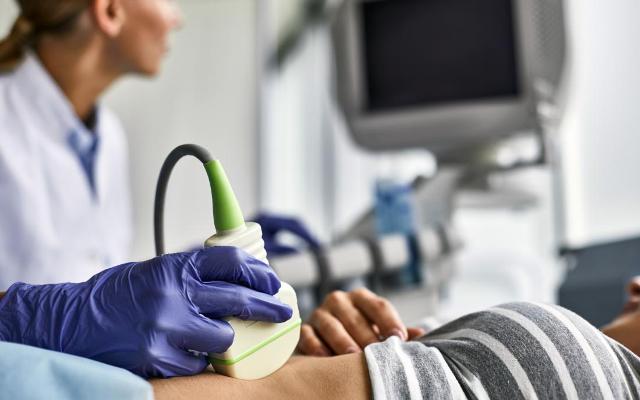There is a sharp rise in endometriosis (a multi-system disorder) cases as many women complain of painful menstruation, cramping, painful sex, constipation, loose motions, bloating, back pain, leg pain, pain while urinating, pain while passing stools, and rectal bleeding. There are many women who are asymptomatic too. Timely diagnosis, appropriate treatment, and considerable knowledge about the disease will help women to improve their quality of life.
Miss Heena Shetty ( Name changed) from Mangalore, a 20-year-old young lady currently in her 3rd year of MBBS suffered from severe pain during menstruation and ovulation causing debilitation and loss of quality of life. She reported excruciating pain for at least 10 days out of a month which compromised her ability to perform in a course as demanding as MBBS. She visited many gynaecologists in her home state who were giving her over-the-counter pain medication or telling her to get married and not taking her pain seriously. She reached out to Dr Abhishek Mangeshikar and after reviewing her imaging and saw that there was an endometriosis cyst (chocolate cyst) in the ovary which was attached to her rectum and pelvic sidewall. She was recommended a laparoscopic excision of the endometriosis where the disease is cut out or excised which has much better results than the traditional technique of burning the disease. A laparoscopy gives the patient the benefit of undergoing major surgery through very tiny abdominal incisions which makes recovery very fast. She was discharged from the hospital in 24 hours. There are many patients like this woman who are fighting this problem while some suffer in silence as many cases go unreported.
“Endometriosis affects girls and women of reproductive age and is attached to any organ associated with reproduction. It can be described as an abnormal growth of tissues resembling the uterine lining outside the uterus. The cause of endometriosis is unknown although there are many theories. The common symptoms are intense pelvic pain, infertility, long menstrual cycles, nausea, or vomiting. The main reason why women should be aware of endometriosis is that the disease is quite common and not rare. It affects more women than breast cancer. Many have not heard of it and the disease has not got the attention it deserves typically because it is not terminal. Many women may complain of excessive pain during periods, it is mistaken to be normal and they are asked to be stronger due to the lack of awareness,” said Dr Abhishek Mangeshikar, Consultant Laparoscopic and Robotic Gynaecologist, ACI Cumball Hill Hospital.
Dr Abhishek added, “Stage I of endometriosis is minimal wherein the patient may have small adhesions and small amounts of endometriosis tissue on an ovary. It may also include inflammation in or around the pelvic area. Stage II is mild and there are more adhesions on or around the ovaries. These adhesions are defined to be “too insignificant” at this stage and are usually too small to be picked up on ultrasound unless the doctor pays attention to probe tenderness in the region while examining the ovary. Stage III is moderate where adhesions will be blatantly obvious and usually, there may be cysts on the ovaries. There may be growths in other areas of the pelvis blurring into the territory of stage 4 endometriosis. Stage IV is the final stage associated with a large number of cysts and severe adhesions. Most of the cysts will appear on the ovaries while the adhesions will appear over the pelvic lining and may affect the fallopian tubes and bowels. This can make bowel movements terribly uncomfortable and period pain the absolute worst.”
During the second wave, only those patients with severe pain who needed emergent surgery and procured the necessary documents for them to travel during lockdown were treated. “We operated 10 cases successfully during the 2nd wave. Since the last 9 months, I have seen hundreds of patients with endometriosis (in person and teleconsultation). I have limited the number of surgeries to emergency and semi-emergency cases so as not to utilize limited resources during Covid and we successfully managed 56 cases of advanced endometriosis during this time. About 25 % of cases suffer from fertility issues but more than 90% suffer from pain,” highlighted Dr Mangeshikar.
Endometriosis needs its own subspecialty and advanced disease is outside the realm of routine OBGY practice and must be dealt with by specialized endometriosis centers. Surgery needs to be done by a well-trained, well-coordinated team of specialists and treatments need to be tailored toward the patient and not just towards the disease. Every case is different and treatment has to be tailored.
“Because we run the only referral center for endometriosis in the country, we have patients from all across India and abroad so the process of traveling to Mumbai for treatment is very streamlined and efficient. Since COVID 19 affected all of us we have to take precautions and patients were stuck waiting for available dates to travel for their surgery. Patients arrive one day prior to their surgery and are admitted to the hospital directly to avoid unnecessary hotel stays. The pre-op counseling, diagnosis, and surgical planning are all done via virtual consultations where the patients’ MRI imaging can be screen shared and they can explain their diagnosis very well. It’s almost like the real thing. The patient is discharged usually with 24 – 72 hours depending on their recovery and complexity of the surgery and they fly home directly after being discharged from the hospital.”
“I am thankful to Dr for helping me tackle the endometriosis problem. Earlier, my life was miserable due to period pain. But, now it has drastically reduced, and I can do my daily chores with ease,” concluded the patient, Miss Heena Shetty.
Early Diagnosis and Prompt Treatment Is Key to Manage Endometriosis: Says Doctor







Comment here